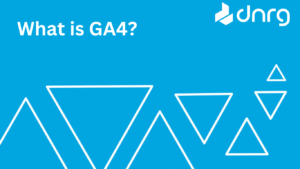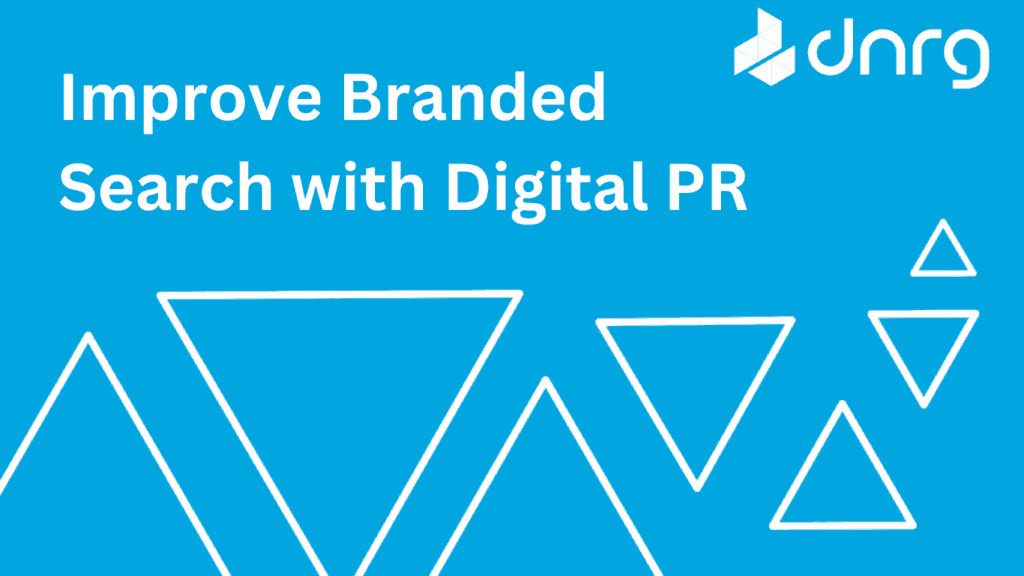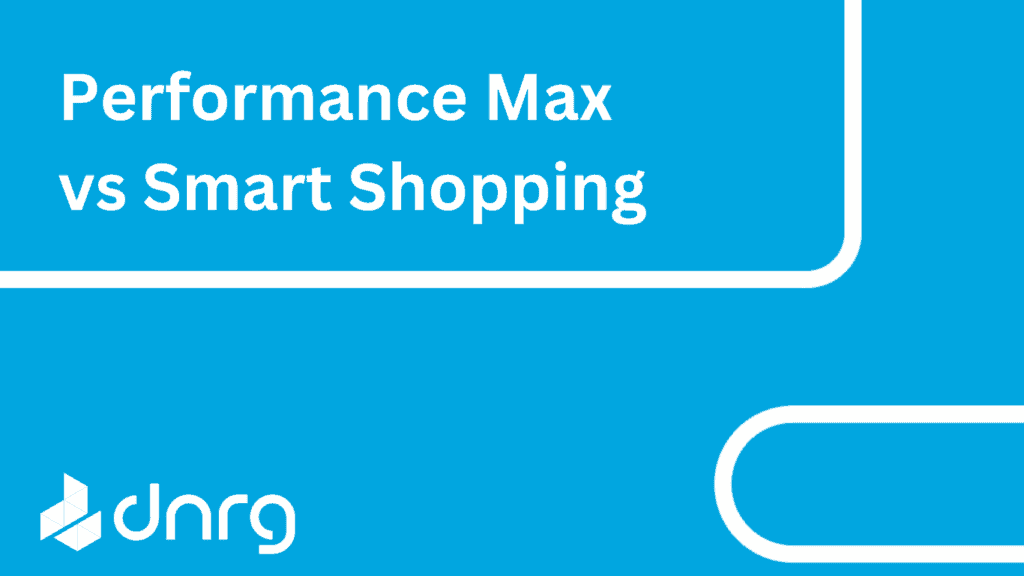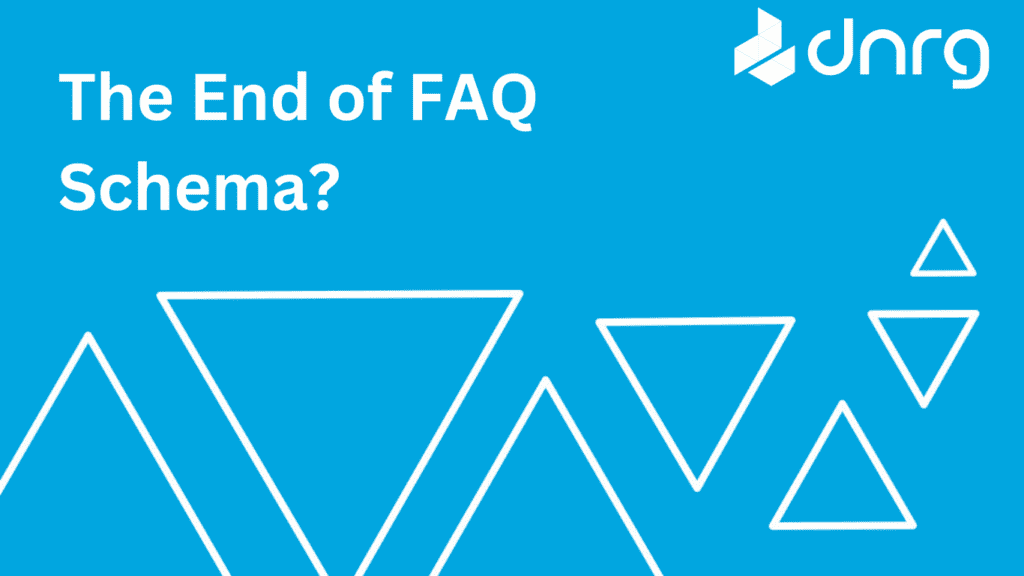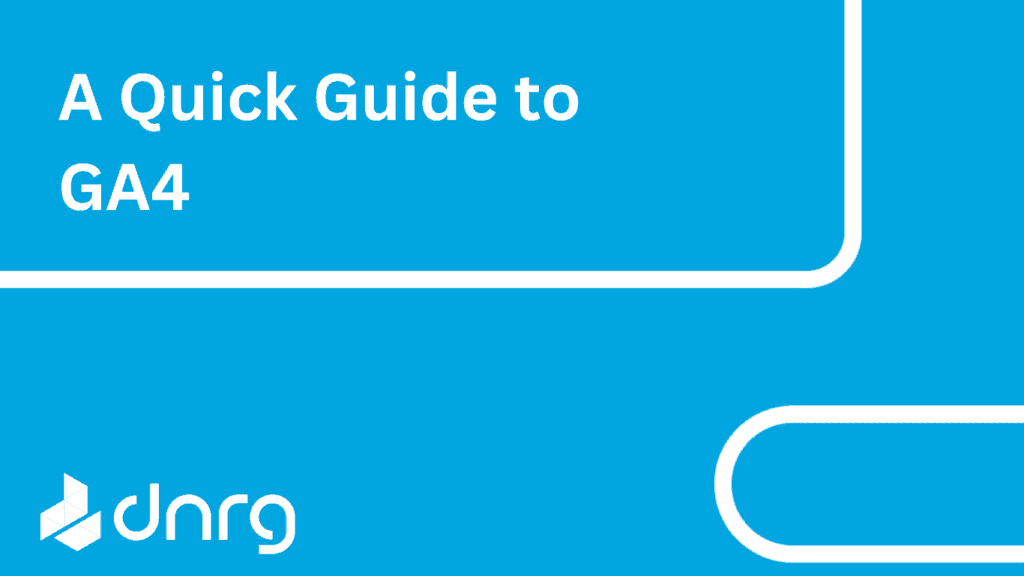On 1st July 2023, traditional Google Analytics tracking, also known as Universal Analytics (UA), will end. It means that new hits won’t be tracked and it will only be useful for historical data. Replacing it, however, is a new form of tracking: GA4. So what is this new form of tracking, what does it mean and why should you care?
What is GA4?
Google Analytics 4 is definitely a taster of what’s to come from Google. With this update, we get an insight into the future aims for analytics tracking. It adds AI-Powered Insights with the ability to track users across devices providing webmasters and marketers with a greater level of detail. In addition to this, GA4 provides a much more detailed integration with Google Ads with the main talking point being the new AI-powered insights.
AI-Powered Insights
AI-powered insights are one of the main talking points relating to GA4. Whilst this functionality is nothing new, the ability for GA4 to automatically spot different trends and report this to digital marketers is immense. The AI-powered insights have the ability to highlight surging demands for different products, predict churn rates and forecast the amount of revenue a business could potentially earn from a specific demographic and market segment.
A New User Interface
One of the big talking points has been the new user interface. Whilst it is definitely a positive step, it is vastly different from the view marketers will be used to through UA tracking. Upon signing in you will be created by a snapshot of traffic for a given date range, users in the last 30 minutes and the insights box which can be used for new custom insights and key metrics that you want to see instantly:
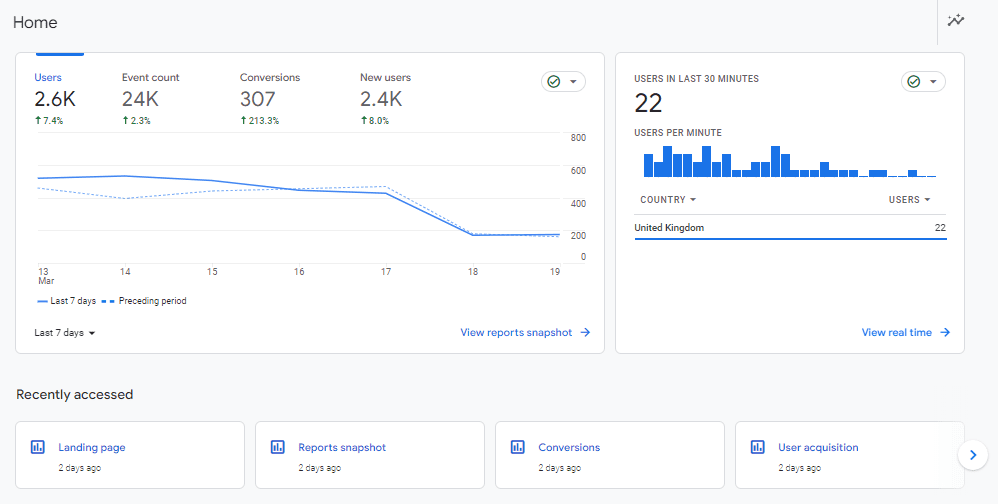 The menu on the left-hand side is drastically different with the addition of lifecycle and other sub-sections such as monetisation and retention to name a few. It is now much easier to create new audiences through the configure -> audiences section. Overall this new modern look for analytics is something that many will learn to love.
The menu on the left-hand side is drastically different with the addition of lifecycle and other sub-sections such as monetisation and retention to name a few. It is now much easier to create new audiences through the configure -> audiences section. Overall this new modern look for analytics is something that many will learn to love.
Cross-Platform Tracking and Integrations with Google Ads
As marketers, we are now able to benefit from the enhanced tracking that GA4 offers. We can now get the most from our audiences with cross-platform tracking. This means that anyone who visits via an app and is then redirected to the web version and converts to the web version will automatically be removed from audiences so that retargeting ads are not shown to that user.
These are just a few of the many features we’ve picked out, but there are many more features you can benefit from in GA4.
What Does GA4 Mean for UA Tracking?
The introduction of Google Analytics 4 means that UA will end. UA is ending primarily because it uses a cookie-based desktop-orientated form of tracking which is quickly becoming obsolete thanks to users being given more freedom to block cookies and the increased use in mobile browsing. Some sites now receive more visits by mobile than they do from desktop users.
What is the Reaction to GA4?
Initially, the opinion on GA4 was split, but the consensus now is that GA4 is built for the future in a way UA isn’t and that there are many benefits to tracking via Google Analytics 4.
After the announcement, Google added the ability to create UA tracking codes when setting up new analytics accounts. This allows marketers to create the old style of analytics account and also a combination of GA4 and UA. It is extremely easy to do this by following the steps below:
- Hit the ‘show advanced options’ when setting up your new GA account:
- Hit the toggle setting next to ‘Create a Universal Analytics property’:
- Decide if you want to set up an account for both GA and UA or just UA. Creating an account for both GA4 and UA will create two properties with connected site tags which means only one tag needs to be added to your website:
Once set up you will be asked to add the tracking code to your website by adding to the <head> of every page or the easier and recommended way through Google Tag Manager.
Shopify and GA4
If you use Shopify to power your e-commerce site, then it would have been running using Universal Analytics tracking. However, with the switch-off of UA imminent, Shopify will start to move over to GA4 tracking in March 2023. For more details about the change and the latest updates, visit the dedicated Shopify Google Analytics 4 help page.
Should I Upgrade to Google Analytics 4?
If you’re a business owner that uses their website for any purpose, either by showcasing your services or selling a product, having GA4 set up is essential to keep tracking on your website. From 1st July, UA will cease to work, meaning you could be left with no tracking on your website. This, in turn, means you won’t know how many visitors are landing on your site, how many conversions are taking place and what your most popular pages, products and services are. Implementing GA4 will future-proof your business in the digital sphere, and if you aren’t able to set it up yourself, DNRG can help.
GA4 at DNRG
At DNRG, we have already set up GA4 tracking for all our clients, and we implement it as standard with any new accounts we onboard. It means that by the time UA stops tracking, not only will GA4 tracking already be set up, leading to a seamless transition, but it also means that you’ll already have historic data to call upon when you need to rely on GA4 as your only active tracking source.
As a leading digital marketing agency in Bristol, we are proud to serve businesses of all sizes in getting them converting online. We are one of few Google Premier Partners and Facebook Partners in the UK, with numerous industry partnerships that can help enhance your performance across a range of channels, including SEO, PPC, Paid Social and Web Development to name but a few. If you’d like to know more about what we can do to help you simply get in touch today.
